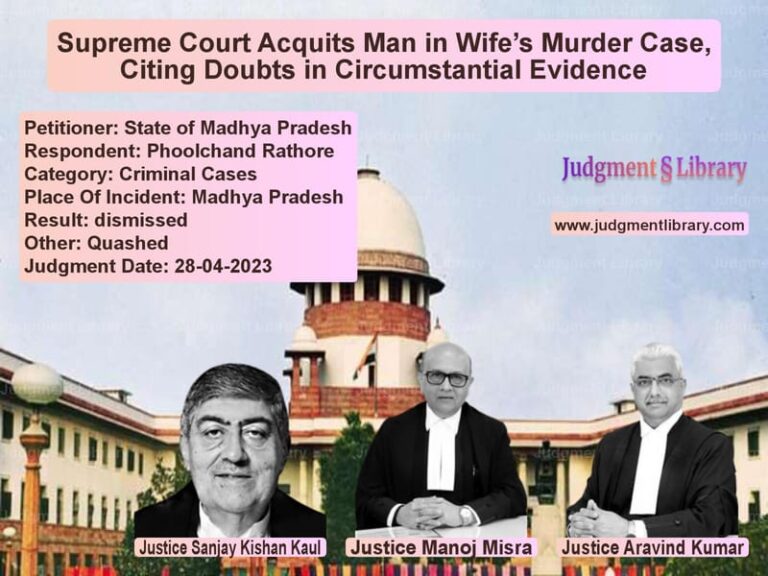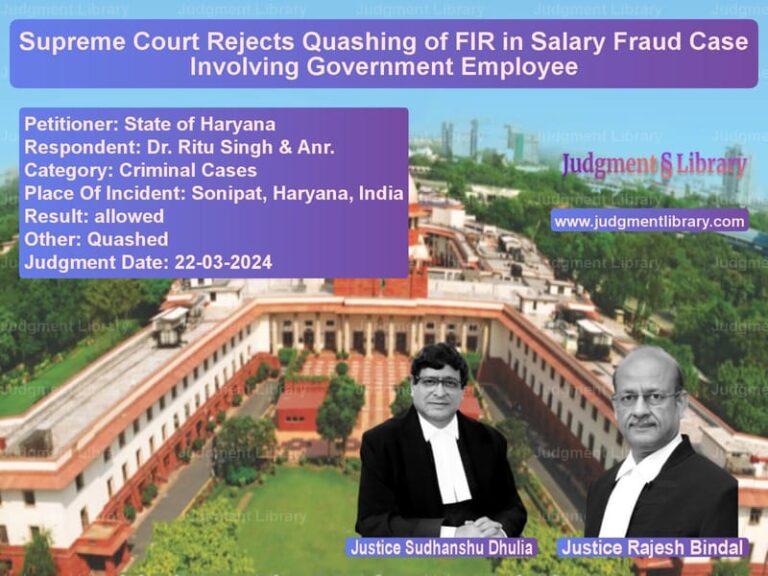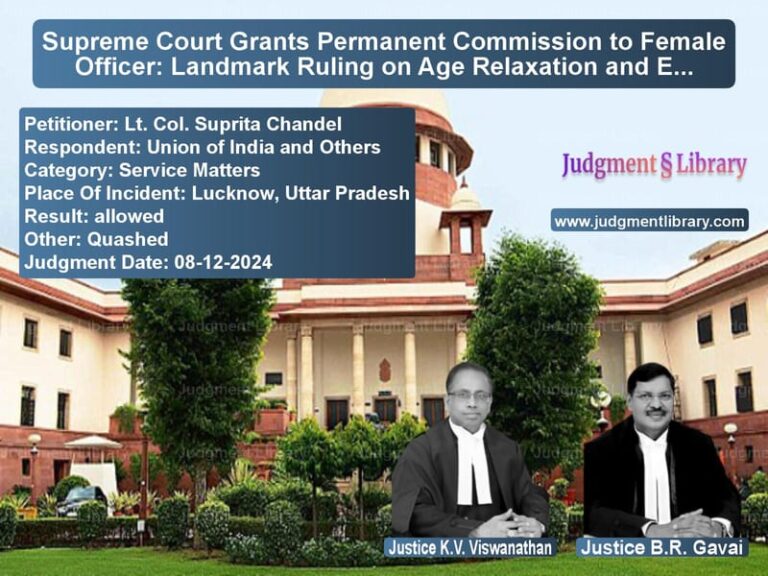Supreme Court Rules User Development Fees at Airports Not Liable for Service Tax
The case of Central GST Delhi – III vs. Delhi International Airport Ltd. concerns whether User Development Fees (UDF) collected by private airport operators under government authorization should be subject to service tax. The Supreme Court ruled that such fees are a statutory levy and do not constitute consideration for a service, thereby exempting them from service tax under the Finance Act, 1994.
Background of the Case
The appeals arose from orders passed by the Customs, Excise, and Service Tax Appellate Tribunal (CESTAT), which had ruled in favor of airport operators, including Delhi International Airport Pvt. Ltd., Mumbai International Airport Pvt. Ltd., and Hyderabad International Airport Pvt. Ltd. (collectively, “the assessees”). The core issue was whether UDF collected from departing passengers was subject to service tax.
The Airports Authority of India (AAI) had entered into agreements with private entities for the operation, maintenance, and development of airports under the Operation, Management, and Development Agreement (OMDA). These private airport operators were authorized to collect UDF from passengers under Section 22A of the Airports Authority of India Act, 1994. The funds collected were meant for airport development, infrastructure improvement, and other capital expenditures.
However, the Commissioner of Service Tax issued show-cause notices demanding service tax on UDF, arguing that it constituted consideration for airport services. The CESTAT ruled against the tax authorities, stating that UDF was a statutory levy and not a service charge. The revenue authorities appealed this decision before the Supreme Court.
Petitioner’s Arguments (Revenue)
The government, represented by the Additional Solicitor General, made the following key arguments:
- UDF is a charge for services provided by airport operators, such as lounges, amenities, restrooms, and passenger facilities.
- The definition of “airport service” under Section 65(105)(zzm) of the Finance Act, 1994, includes “any service provided at an airport.”
- Without paying UDF, passengers cannot access airports, making it an essential service charge.
- Since UDF funds infrastructure and airport expansion, it indirectly benefits passengers and should be treated as consideration for service.
- The ruling in Consumer Online Foundation v. Union of India (2011) did not directly address service tax liability and should not be relied upon.
Respondent’s Arguments (Airport Operators)
The airport operators countered with the following arguments:
- UDF is a statutory levy imposed under Section 22A of the AAI Act, not a contractual payment for services.
- The Supreme Court in Consumer Online Foundation held that UDF is a cess or tax, not a fee for services rendered.
- Passengers do not receive additional benefits due to UDF collection; the funds go into a government-regulated escrow account to finance future airport development.
- The government’s attempt to impose service tax contradicts CBEC Circular No. 89/7/2006, which exempts statutory levies from service tax.
Supreme Court’s Observations
The Supreme Court carefully analyzed the provisions of the Finance Act, 1994, the AAI Act, and past judicial precedents. Key findings included:
- UDF is not a payment for airport services but a statutory levy imposed for infrastructure development.
- Under Consumer Online Foundation, the Court had already ruled that UDF is a tax-like exaction, which cannot be equated with fees for services.
- For service tax to apply under Section 67 of the Finance Act, there must be a direct nexus between a service and the payment received.
- Since UDF funds are regulated by law and do not go to the airport operator’s profits, they do not constitute consideration for services rendered.
- The government’s reliance on Krishi Upaj Mandi Samiti v. Commissioner of Central Excise was misplaced, as that case involved optional service charges, whereas UDF is a compulsory levy.
Key Judgment Excerpt
The Supreme Court held:
“The nature of the levy under Section 22A of the AAI Act, in our considered opinion, is not charges or any other consideration for services for the facilities provided by the Airports Authority.”
It further observed:
“Once we hold that the development fees levied under Section 22A is really a cess or a tax for a special purpose, Article 265 of the Constitution, which provides that no tax can be levied or collected except by authority of law, gets attracted.”
Final Verdict
The Supreme Court dismissed the revenue’s appeal and upheld the CESTAT’s decision, ruling that:
- UDF is a statutory levy and not liable to service tax.
- Airport operators do not provide a service in exchange for UDF, making it outside the scope of service tax.
- UDF is collected for public interest infrastructure projects and remains regulated by law, ensuring it does not function as a commercial service charge.
This judgment reinforces the principle that statutory levies meant for infrastructure development cannot be treated as service charges for tax purposes, setting a precedent for future taxation disputes.
Petitioner Name: Central GST Delhi – III.Respondent Name: Delhi International Airport Ltd..Judgment By: Justice S. Ravindra Bhat, Justice Dipankar Datta.Place Of Incident: India.Judgment Date: 19-05-2023.
Don’t miss out on the full details! Download the complete judgment in PDF format below and gain valuable insights instantly!
Download Judgment: central-gst-delhi-vs-delhi-international-supreme-court-of-india-judgment-dated-19-05-2023.pdf
Directly Download Judgment: Directly download this Judgment
See all petitions in Customs and Excise
See all petitions in Tax Refund Disputes
See all petitions in Banking Regulations
See all petitions in Judgment by S Ravindra Bhat
See all petitions in Judgment by Dipankar Datta
See all petitions in dismissed
See all petitions in supreme court of India judgments May 2023
See all petitions in 2023 judgments
See all posts in Taxation and Financial Cases Category
See all allowed petitions in Taxation and Financial Cases Category
See all Dismissed petitions in Taxation and Financial Cases Category
See all partially allowed petitions in Taxation and Financial Cases Category







